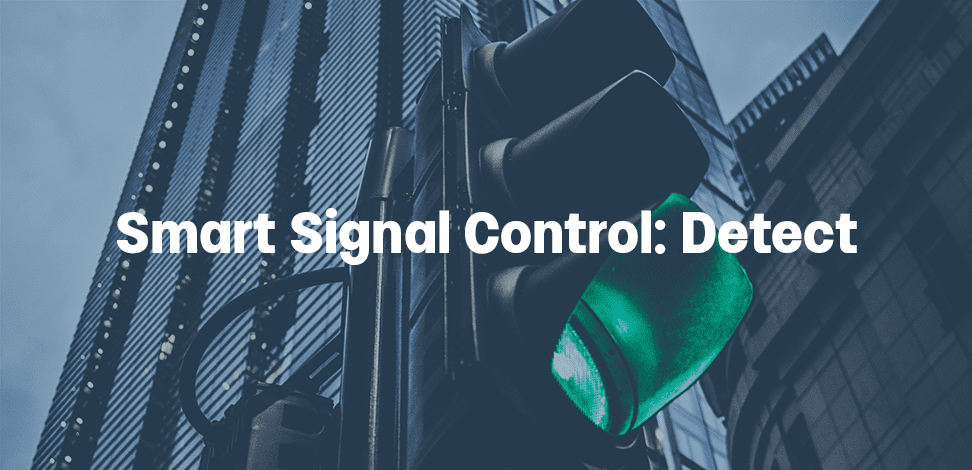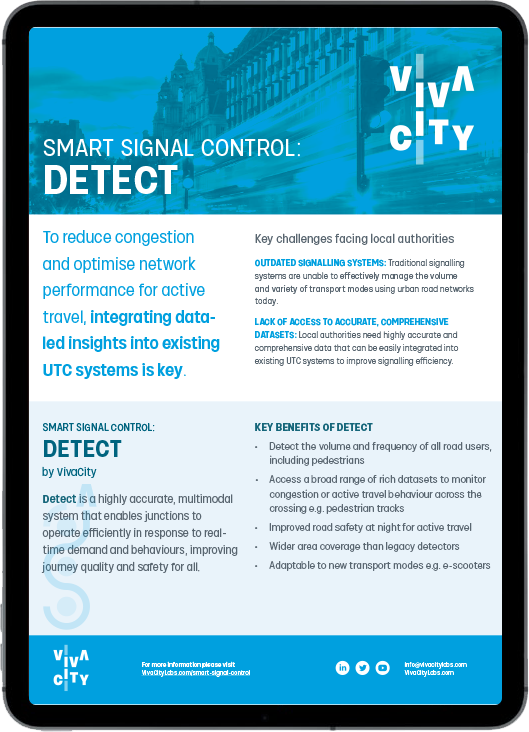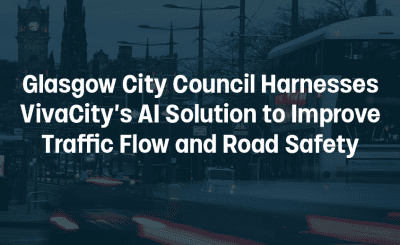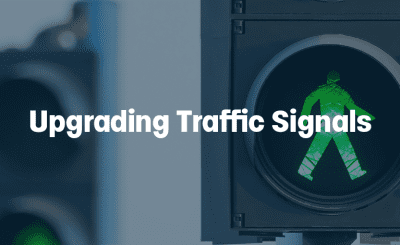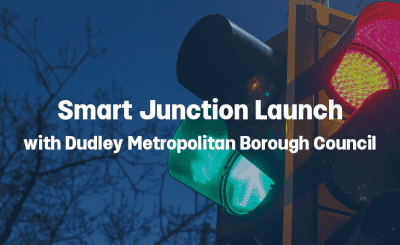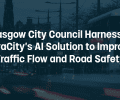The congestion challenge
Congestion is one of the greatest challenges facing towns and cities across the world. There is huge pressure on highway authorities to improve the reliability of their road networks, incentivise active travel and improve air quality.
Traditional signalling technology is unable to efficiently process the reality of today’s mobility landscape and the sheer volume of road users on the network. Councils are constrained by existing junction layouts that were not built for the level of population, and building more roads and imposing traffic bans is unsustainable.
Harnessing AI to tackle congestion
To reduce congestion, effective Urban Traffic Control (UTC) is vital, and data here is key. Our AI-powered sensors gather accurate, detailed and anonymous mobility data 24/7 on transport modes, traffic flow and travel patterns.

Smart Signal Control: Detect
Smart Signal Control: Detect is a VivaCity signalling solution.
Detect is the integration of our powerful AI sensors with existing UTC systems.
Integration is achieved in one of two ways:
- Direct local integration: live data is fed into the controller at the junction for onsite decisions
- Real-time data streaming: data is fed to the installation of a UTC system for data analysis
The result is highly accurate sensor data that informs signalling stages for optimised network performance.
Why choose Smart Signal Control over traditional detection methods?
Our AI sensors provide much more comprehensive datasets than traditional detection technologies. As well as a broader range of datasets, including Path data, Speed, Journey Times and Turning Counts, VivaCity junction data is hyperlocalised and in real-time.
As the variety of vehicle types in the urban traffic landscape increases, access to real-time multimodal insights, and the ability to identify transport mode movement patterns and behavioural trends shifts, is more important than ever.
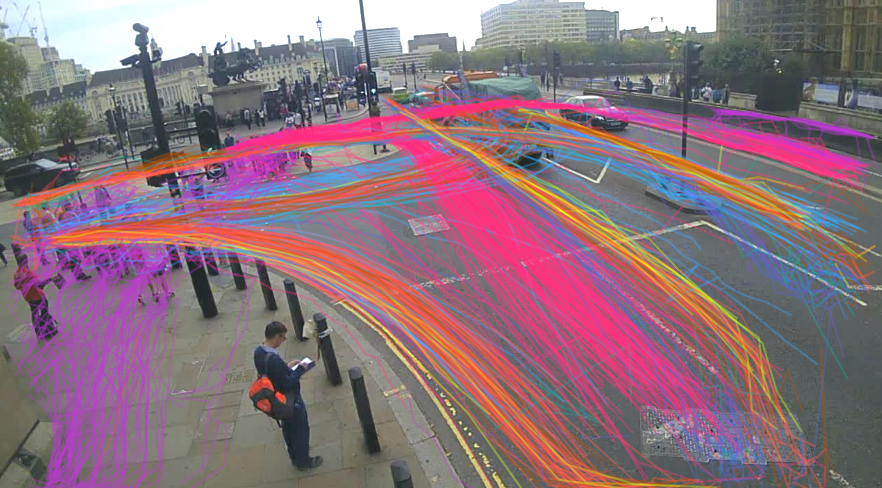
Unlike incumbent above and below ground detection technologies, our solution offers accurate multimodal detection of a range of road user classes, including pedestrians, cyclists and e-scooters.
Induction loops are limited to the detection of metallic road users. When optimised to count cyclists this is at a trade-off in their ability to classify other vehicle types. Above ground detectors, such as infrared transmitters, are unable to accurately identify micromobilty and are limited to ‘single lane’ detection. VivaCity’s 110° field of vision captures movement data across multiple lanes.
Another important advantage of VivaCity sensors over traditional alternatives is their night time detection capability, which outperforms other above ground detectors.
Despite our solution’s advanced capabilities, Smart Signal Control: Detect is an economical choice. It’s more reliable, and cheaper to install and maintain than induction loops and other traditional detection technology.
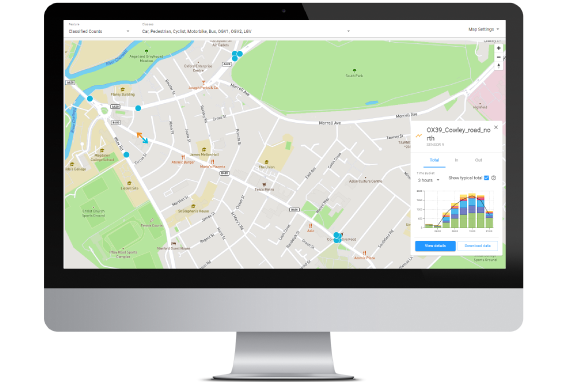
How UTC integration works with Smart Signal Control: Detect
Installed near the junction, VivaCity sensors gather anonymous, real-time, multimodal traffic data and send these datasets to the existing Controller Cabinet via ethernet. This data can be used by the existing system to optimise signalling, depending on the junction’s specific design and requirements.
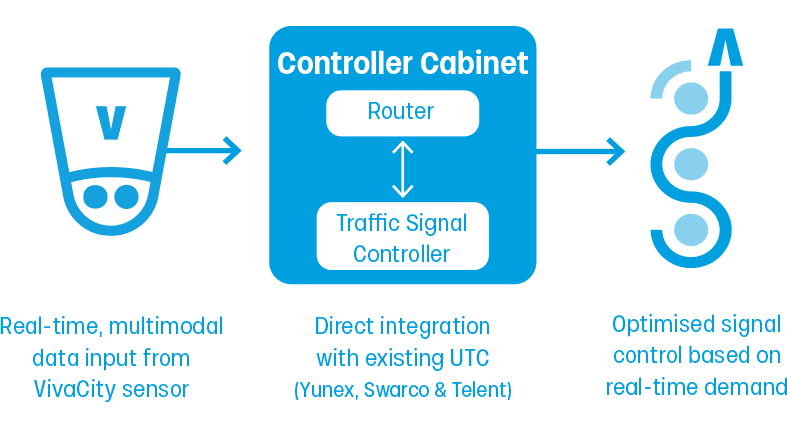
Learn more about how VivaCity’s Smart Signal Control: Detect solution can enhance the operation of traffic signal controllers.
Smart Signal Control: AI for Detection
Case Study
Toucan crossing optimisation, Sheffield City Council
AI for Detection was chosen for its ability to detect vehicles, cyclists and pedestrians over a wide area
Since June 2022 Sheffield City Council have used Smart Signal Control: AI for Detection to optimise a Toucan crossing for active travel users.
The sensors are used for advanced cyclist detection on the approach paths to the crossing, as well as pedestrian “on-crossing” and waiting area occupancy data. This data is used to call the crossing stage upon detection of cyclist approach, or to request the extension of the pedestrian stage based on occupancy of pedestrians in the on-crossing area.
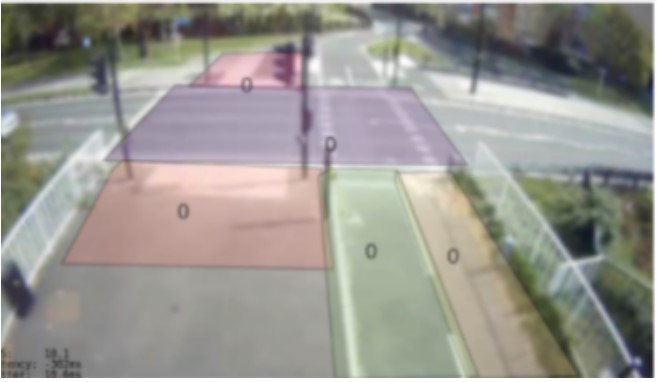
VivaCity sensors are locally integrated with the existing Dynniq signal controller via Dynniq’s PTC-Connect interface. Classified zonal occupancy data is communicated in real-time, along with a heartbeat signal for error checking. This data is used to call the crossing stage upon detection of cyclist approach, or to request the extension of the pedestrian stage based on occupancy of pedestrians in the on-crossing area.
The local integration of VivaCity sensor data into Sheffield’s existing UTC system has made the junction more efficient and safer for active travel road users, by detecting their approach up to 25 metres from the junction and providing a green signal for their arrival.
UTC is just the start of the journey
VivaCity’s vision is to make cities smarter, safer and more sustainable. Since 2016 we’ve been leading development of the most innovative traffic monitoring AI technology. Smart Signal Control: AI for Detection is just the first step in revolutionising urban traffic management, fit for the future.
We’re looking ahead to Smart Junctions, our full AI signal control solution that is enriched with Reinforcement Learning capabilities and offers reduced congestion and increased network capacity.
We have successfully piloted this Smart Junctions technology in Greater Manchester, working with Transport for Greater Manchester, where we have demonstrated a 23% improvement in journey times. and will be rolling this out more widely in Cambridge, Peterborough, Nottingham and the West Midlands.
You can find out more about our journey and road to Smart Junctions by downloading our award-winning paper (JCT Symposium 2021 Best-paper Award) ‘Smart Junctions: AI for Traffic Signals’.
All the information about our
Smart Signal Control: Detect solution can be found in this brochure.
Want to know more about what is inside the brochure before downloading it? This page is for you.
Get in touch with the VivaCity team to find out more about our Smart Signal Control: AI for Detection, VivaCity’s UTC integration solution and let us help you with your current projects.
Like our content? Sign up to our newsletter and receive the latest updates in your inbox.
Sign-Up
